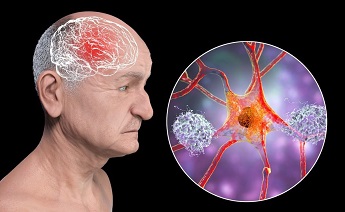International Study Discovers That SARS-CoV-2 N Proteins Hijacks Human 14-3-3 Proteins With Implications Of Future Rise In Neurological And Psychiatric Issues!
Source: SARS-CoV-2 Research Dec 26, 2021 4 years, 1 month, 4 weeks, 1 day, 22 hours, 35 minutes ago
SARS-CoV-2 Research: More bad news especially in the area of Long COVID and long-term health issues. As the Omicron variant exponentially spreads around globally and stupid humans who truly deserve to be eradicated from the face of this earth as they are assuming that the Omicron is a mild variant due to the initial mild symptoms associated with its infection but are not paying attention to the massive potential health problems in can bring in the long term due to its unique pathogenesis and mode of disarming the immune system of the human host, the world is going to see a massive long COVID crisis in coming months and years.
Have A Heart and Do Not Ignore This Appeal For Help! Please help us this Christmas. Support this website and also our research and community initiatives by making a donation. Your help saves lives directly and indirectly. Thank You.
https://www.thailandmedical.news/p/sponsorship

A new international study by researchers from the Russian Academy of Sciences-Moscow, the University of York-United Kingdom and the Oregon State University-USA have found that the SARS-CoV-2 nucleocapsid protein (N) is able to hijack the functions of the human 14-3-3 Proteins. As these proteins are predominantly found in the human host brain tissues and are involved in neural signaling, neuronal development and neuroprotection, a disruption of their functions will ultimately lead to a variety of neurological and neuropsychiatric issues arising in those that have been infected!
The study findings were published on a preprint server ad are currently being peer reviewed.
https://www.biorxiv.org/content/10.1101/2021.12.23.474009v1
14-3-3 proteins are a family of conserved regulatory molecules that are expressed in all eukaryotic cells. 14-3-3 proteins have the ability to bind a multitude of functionally diverse signaling proteins, including kinases, phosphatases, and transmembrane receptors. More than 200 signaling proteins have been reported as 14-3-3 ligands.
There are seven genes that encode seven distinct 14-3-3 proteins. Eukaryotes can tolerate the loss of a single 14-3-3 gene if multiple genes are expressed, however deletion of all 14-3-3s results in death.
14-3-3 proteins are structurally similar to the Tetratrico Peptide Repeat (TPR) superfamily, which generally have 9 or 10 alpha helices, and usually form homo- and/or hetero-dimer interactions along their amino-termini helices. These proteins contain a number of known common modification domains, including regions for divalent cation interaction, phosphorylation & acetylation, and proteolytic cleavage, among others established and predicted.
14-3-3 proteins were originally discovered as a family of proteins that are highly expressed in the brain. Through interactions with a multitude of binding partners, 14-3-3 proteins impact many aspects of brain function including neural signaling, neuronal development and neuroprotection. Although much remains to be learned and understood, 14-3-3 proteins have been implicated in a variety of neurological
disorders based on evidence from both clinical and laboratory studies.
The SARS-CoV-2 nucleocapsid protein (N) is responsible for the viral genome packaging and virion assembly.
Being highly abundant in the host cell upon infection, N interacts with numerous human proteins and undergoes multisite phosphorylation in vivo.
Importantly the
SARS-CoV-2 Research findings found that when phosphorylated within its Ser/Arg-rich region, a tract highly prone to mutations as exemplified in the Omicron and Delta variants, N recruits human 14-3-3 proteins, potentially hijacking their functions.
The study team discovered that in addition to phosphorylated Ser197, an alternative, less conserved phosphosite at Thr205, absent in SARS-CoV N, binds 14-3-3 with micromolar affinity and is in fact the preferred binding site.
Fluorescence anisotropy reveals a distinctive pT205/pS197 binding selectivity towards the seven human 14-3-3 isoforms. While explaining the structural basis for the discovered selectivity towards SARS-CoV-2 N phosphopeptides, the crystal structures enable prediction of N interactions with 14-3-3, suggesting a link between the strength of this interaction and replicative fitness of emerging coronavirus variants.
The study findings that show the SARS-CoV-2 nucleocapsid protein (N) depleting as well as hijacking the functions of the seven human 14-3-3 isoforms has serious long-term health implications in terms of the neurological and also neuropsychiatric issues and more studies are urgently warranted on these.
Have A Heart and Do Not Ignore This Appeal For Help! Please help us this Christmas. Support this website and also our research and community initiatives by making a donation. Your help saves lives directly and indirectly. Thank You.
https://www.thailandmedical.news/p/sponsorship
For the latest
SARS-CoV-2 Research, keep on logging to Thailand Medical News.
